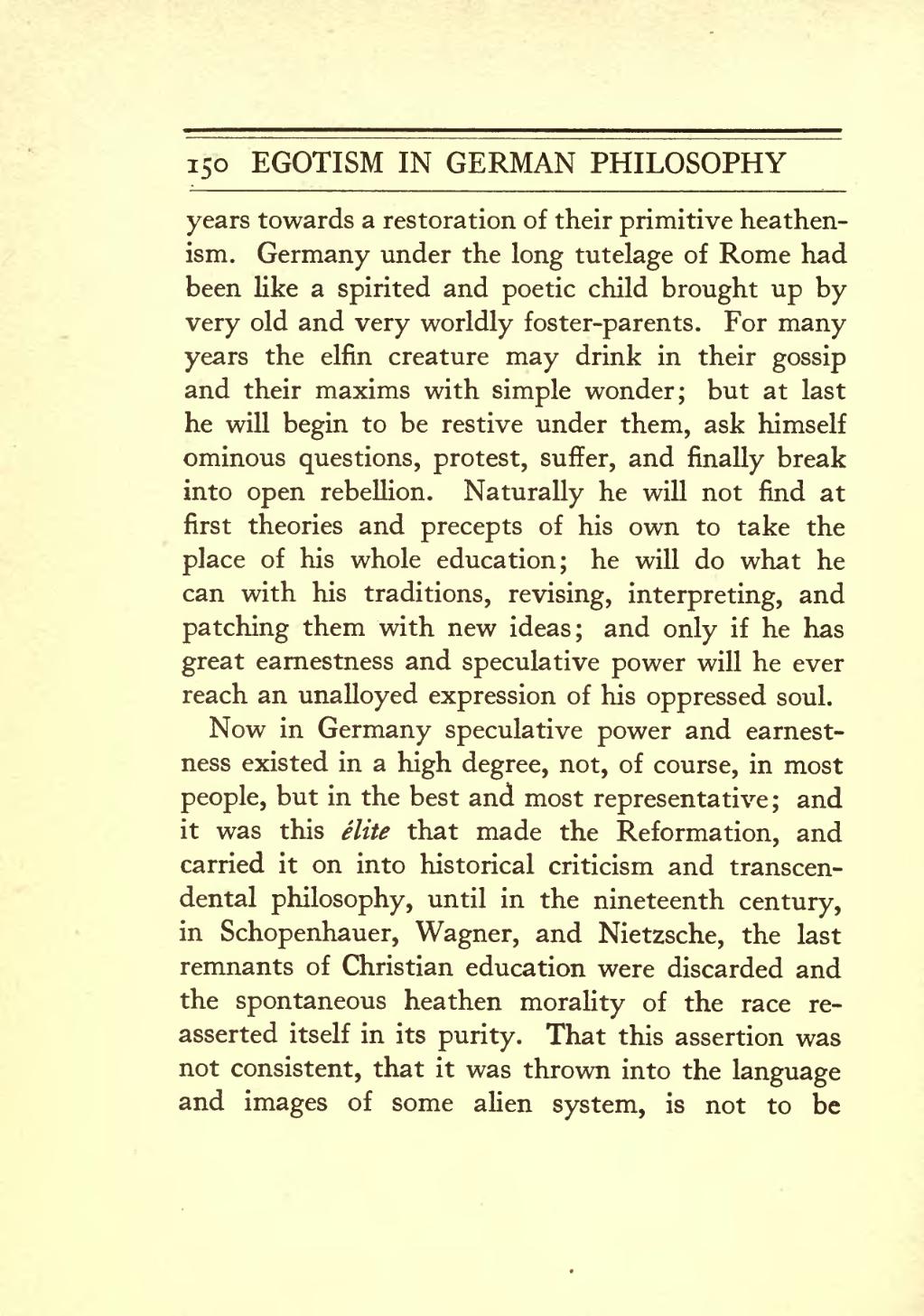years towards a restoration of their primitive heathenism. Germany under the long tutelage of Rome had been like a spirited and poetic child brought up by very old and very worldly foster-parents. For many years the elfin creature may drink in their gossip and their maxims with simple wonder; but at last he will begin to be restive under them, ask himself ominous questions, protest, suffer, and finally break into open rebellion. Naturally he will not find at first theories and precepts of his own to take the place of his whole education; he will do what he can with his traditions, revising, interpreting, and patching them with new ideas; and only if he has great earnestness and speculative power will he ever reach an unalloyed expression of his oppressed soul.
Now in Germany speculative power and earnestness existed in a high degree, not, of course, in most people, but in the best and most representative; and it was this élite that made the Reformation, and carried it on into historical criticism and transcendental philosophy, until in the nineteenth century, in Schopenhauer, Wagner, and Nietzsche, the last remnants of Christian education were discarded and the spontaneous heathen morality of the race reasserted itself in its purity. That this assertion was not consistent, that it was thrown into the language and images of some alien system, is not to be
